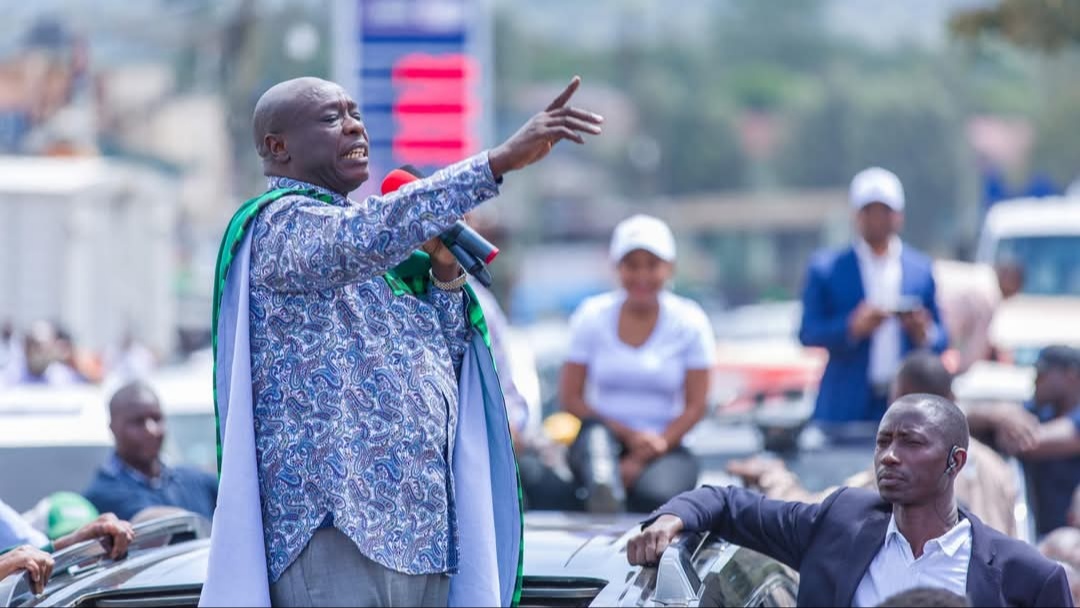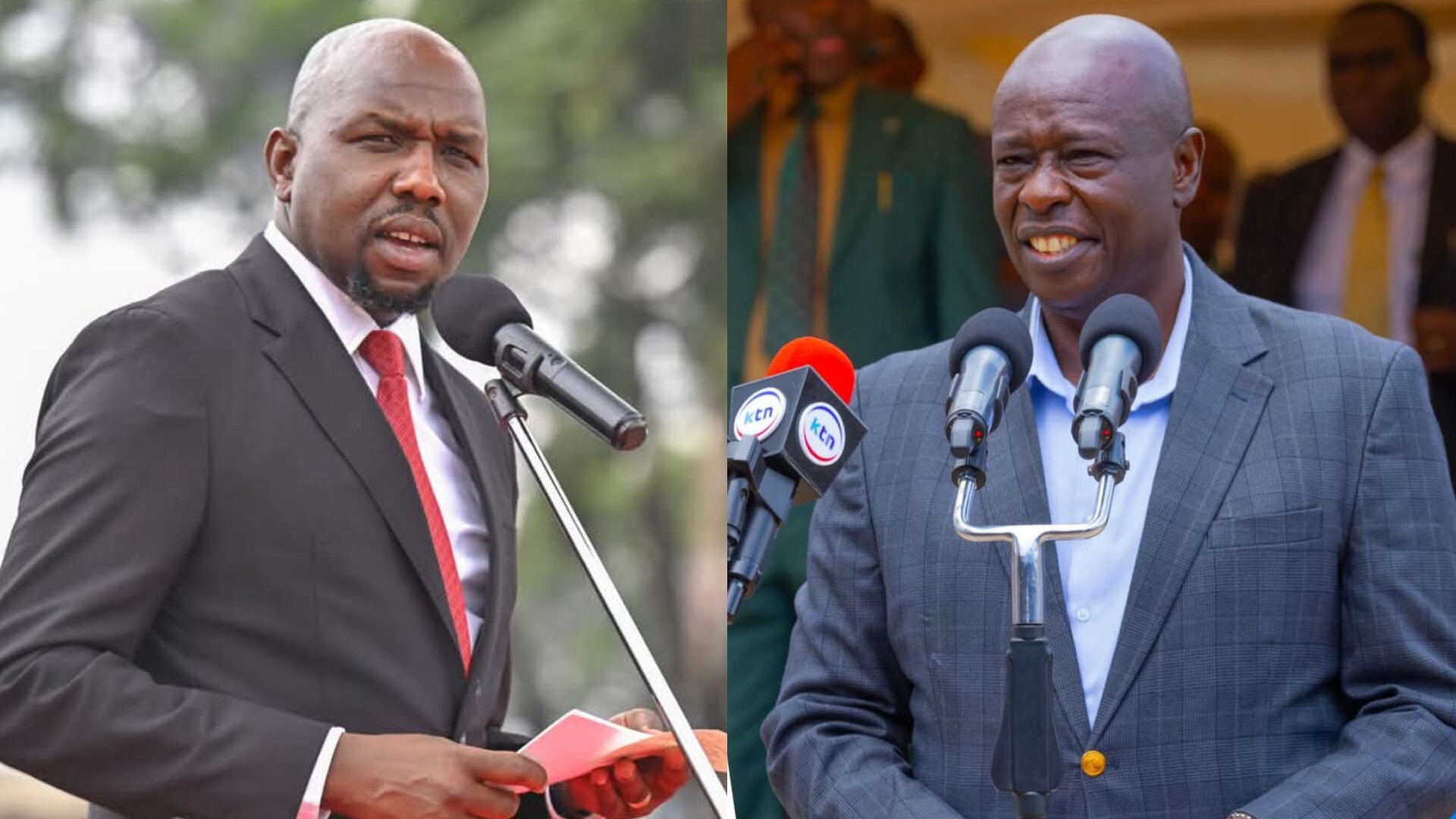Former Deputy President Rigathi Gachagua has dared Interior Cabinet Secretary Kipchumba Murkomen to invoke the Official Secrets Act and launch charges against him and former Public Service CS Justin Muturi for sharing classified government information.
Speaking on Sunday April 27, Gachagua questioned if theft of public resources and alleged involvement of President William Ruto with Sudan’s Rapid Support Forces (RSF) was classified information.
"I saw a Cabinet Secretary saying that we could be prosecuted for leaving office and allegedly divulging classified information.
"Since when did theft become classified, that we are not supposed to speak about the president collaborating with rebels from Sudan to oppress the people of Sudan, trading in gold, and selling guns meant to kill children and women? How can crimes be classified?” Gachagua posed.
The former DP dared CS Murkomen to file charges against him and Muturi, saying they are ready to go to jail for disclosing President Ruto’s secret deeds.
Read More

“I want to tell that CS (Murkomen) to go ahead and file charges against us, today or tomorrow, we are ready. Prisons are for men and women. We will continue speaking about the theft happening in Kenya, about all the evil deeds committed by the president and the government. I, together with JB Muturi, Linturi, and others, will keep speaking. We are children of the Mau Mau,” Gachagua added.
This comes after reports emerged that the state was planning to invoke the Official Secrets Act in a bid to clamp down on the sharing of classified information by former public official.
However, CS Murkomen on April 26 stated that Gachagua and Muturi were not under investigation for any breach.
The Interior CS noted the Official Secrets Act applies to matters of national security and borders on espionage.
“MPs asked general questions, including compliance with the confidentiality law. We have no complaint at the moment and no one is under investigation. We are talking of any officer given the opportunity to access government information that could compromise national security and borders on espionage,” Murkomen explained.






